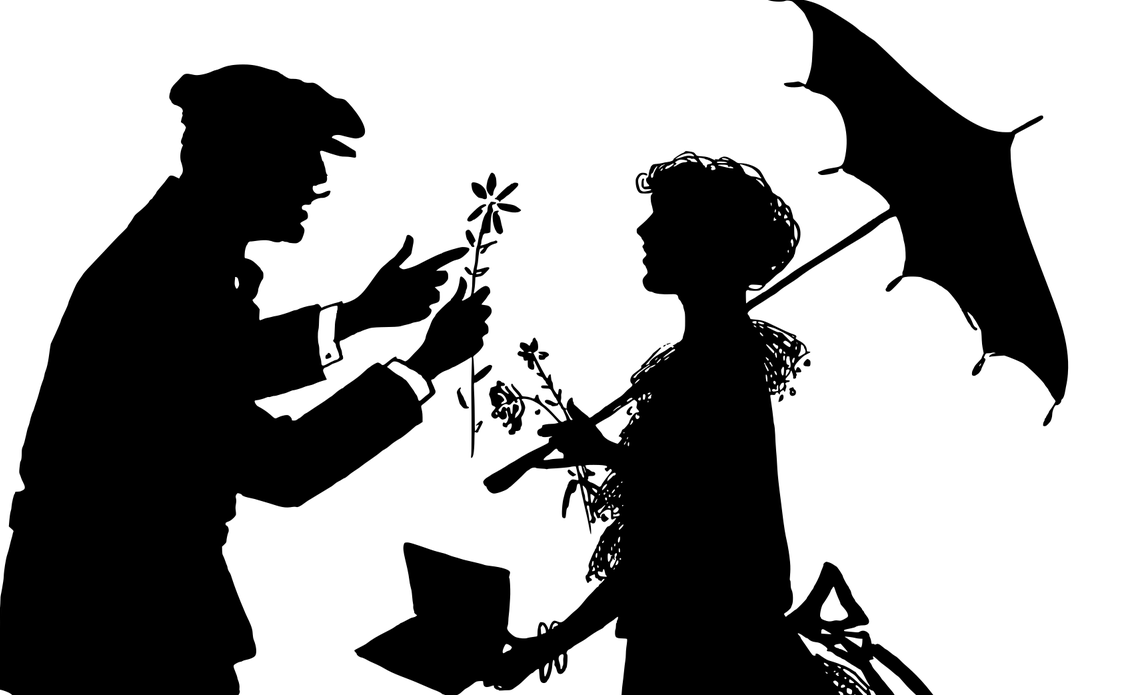Swipe left or right?: Filipino traditional courtship in the digital age
By Sonny Daanoy
Para sa'yo, susungkitin ko mga bituin. Ipagsisibak kita ng kahoy para sa matamis mong oo. Ipag-iigib kita para makuha ang iyong kamay mula sa iyong mga magulang (For you, I will reach for the stars. I will chop fuel wood for your sweet yes. I will fetch water for you to gain your hand from your parents).

Picture these sentences being employed in the context of modern courtship. Do they still carry the same effectiveness, or has the traditional approach become outdated?
Are they being entirely replaced, or are they simply being elevated to a more convenient and digitalized form in this modern age?
As courtship involves intentional behavior aimed at persuading someone to enter into a romantic relationship, this article aims to provide the public with insights into the evolution of courtship.
It explores how traditional courting practices have transformed in the digital age.
'Wala kayo sa lolo ko'
In a small village of Barangay Trinidad, Calbayog City, Samar, during the 1960s, a diminutive yet formidable individual named Constantino Matildo, also known as "Tantan," showed a remarkably and highly successful approach to traditional courtship.
Standing at a modest five feet, this man left an indelible mark on the life of his beloved wife, Leona Cano.
In 2024, their love story, spanning an impressive 62 years of marriage, continues to resonate vividly in Cano's heart and memories.
“An amon harampang sadto, pwertiha ka-ayo (Our conversation back then was really nice)," Cano reminisced as she recalled their love story.
According to his beloved wife, Matildo was initially "torpe"—a term for young men who may be shy or unsure in approaching girls—yet he transformed into a true gentleman. In secret, he skillfully navigated and fended off every suitor vying for Cano's affection.
Matildo employed the three fundamental aspects of classic courtship: "Harana" (serenade), "Paninilbihan" (service), and the art of expressing affection through eloquent and sincere words, known as "ma-bulaklak na mga salita."
This small but terrible lover boy dedicated himself to laboring on Cano's farm without compensation: he tirelessly cut grass, planted rice, and diligently cared for their family-owned Carabao.
Even after their wedding, Matildo maintained his unwavering consistency by serenading his wife with a classic Bisaya song by Victor Wood, "Ikaduhang Bathala", a melody he tirelessly sang to express life-long affection.
Through these efforts, Matildo secured Cano's sweet "yes," and from that moment onward, the rest became a cherished history.
According to Cano, even though their courtship was not lengthy, the love Matildo expressed for her remained priceless.
From the day they met until his last breath, he never withheld his support, even in the most challenging moments of their misunderstandings.
Even though Matildo joined the Creator in 2015 due to complications, Cano remained unwaveringly loyal to her late husband, a testament to the vows they exchanged in front of God.
Modern courtship
Moreover, Filipino courtship has reached its highest potential by incorporating the said old-school courtship practices into digital platforms.
In an interview with Manila Bulletin, a 25-year-old named "An" shared her experiences and expressed her perspective on what is better, having encountered both traditional and modern forms of courtship.
E-harana, digital love letter, modern servitude
In the said interview, An mentioned that she experienced electronic harana (E-harana), referring to the modern serenade.
She shared that her lover, whom she met on a dating app, used to serenade her through modern messaging platforms like Messenger.
"My boyfriend, he really can't sing, he just does it to impress me," An said in a mix of English and Filipino.
"So I must say that the modern style nowadays is better because it's timely and a more convenient way since we are in a long-distance relationship," she added.
Meanwhile, when it comes to love letters, An prefers the traditional way because it allows for visible efforts to be demonstrated through the act of writing.
"Much preferred the traditional way because you can see the effort, cutting and arranging flowers, even with your favorite flower clipped on," she said.
Moreover, she emphasized her inclination towards the modern way of courtship, particularly in the aspect of acts of service.
"There's a different feeling when he cooks for you as soon as you wake up in the morning, he'll buy you whatever food you want, then he'll take you to beautiful sites, and he'll wrap you in a blanket when he sees that you're feeling cold," she explained.
Furthermore, An pointed out that the mentioned traditional phrases would be considered "corny" or not effective in today's generation.
Love scam
Moreover, as courting practices have entered the digital age, the Department of Information and Communications Technology (DICT) reiterated the risks of love scams.
"We continue to remind our fellow citizens here at DICT and in our government to exercise their right to be vigilant, to have awareness on scamming being perpetrated using the internet," DICT Assistant Secretary Aboy Paraiso said in an exclusive interview with Manila Bulletin.
Paraiso emphasized that a significant factor in love scams is the public's tendency to share personal information on social media.
"This love scam really profiles us using the things we post on social media," he said.
"They can gather information about us because we voluntarily give our information to social media," he added.